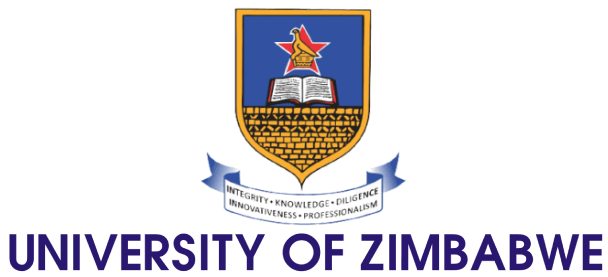The Unit of Medical Microbiology was established on 1 October 1968 at the Main Campus of the then University College of Southern Rhodesia under the Chairmanship of Professor J. G. Cruickshank with Mr Frank L. Golding as the Chief Technologist. It consists of four sections namely Virology, Parasitology, Bacteriology and Mycology but has evolved to include Molecular Biology and Vaccinology. It is located in the Faculty of Medicine and Health Sciences, Old Building's First floor within Parirenyatwa Group of Hospitals Building. Currently the Unit is headed by Prof RT Mavenyengwa.
Coordinator / Associate Professor
PROFESSOR ROOYEN TINAGO MAVENYENGWA
Qualifications: BSc (H) Biological Sciences. (UZ); MSc Medical Microbiology. (UZ); DPhil. Molecular Microbiology (Norwegian Univ. of Scie & Tech, Trondheim, Norway); Grad CE (UZ).
Email : rmavenyengwa@yahoo.com, rmavenyengwa@medsch.uz.ac.zw
Prof Rooyen T Mavenyengwa joined the College of Health Sciences, University of Zimbabwe, Department of Medical Microbiology in 2002. He holds a BSc (Hons) in Biological Sciences, MSc Med. Micro., in addition to a Post Graduate Certificate in Education all from both from the University of Zimbabwe. He did his DPhil at the Norwegian University of Science and Technology in Trondheim, Norway in 2012.
He is the first African Scholar to utilise molecular techniques to characterize Group B streptococcus (GBS) which causes infections in pregnant women and children. His other research interests include antibiotic resistance testing, HIV and AIDS, hepatitis B virus and other viruses of public health importance, Transfusion Transmissible infections (TTIs), Cryptococccus, tuberculosis (TB) and gastrointestinal infections. One of his main research highlights includes the discovery of the new surface-anchored protein in GBS called the “Z” protein. He has published a book on the molecular characterization of GBS in addition to publishing at least 25 publications in peer reviewed journals and presented scientific research work at local, regional and international conferences and symposia around the globe. He has worked as visiting scholar at the Namibia University of Science and Technology as a Deputy Head of Biomedical Sciences Department in 2013-14 where he was given researcher of the year award in the Faculty of Health Sciences. He mainly teaches Medical Bacteriology and Molecular Biology to undergraduate and postgraduate students in various medical related programmes and coordinates the training of the HIV Rapid testing course. He is the Head of the UZ National Virology Laboratory a WHO accredited and funded Laboratory for the diagnostic and active surveillance of Measles, Rubella, Polio and Rotavirus. He is the current and inaugural American Society of Medical Microbiology (ASM) Country Ambassador. Professor Mavenyengwa has received other numerous academic, research and travel awards in recognition of his outstanding contribution to Medical Microbiology scientific research.
